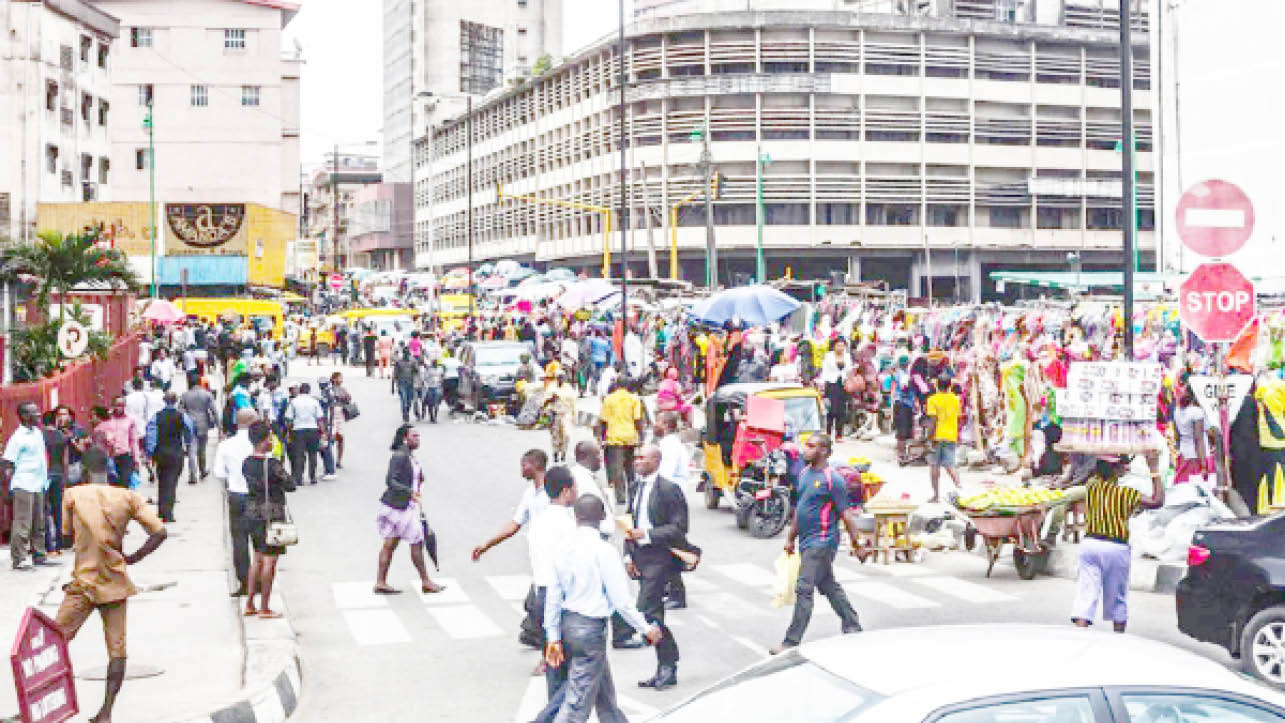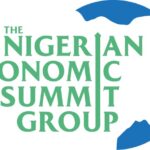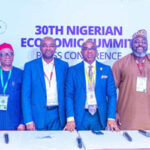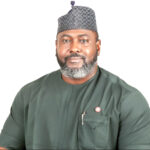The Nigeria Economic Summit Group (NESG), the country’s foremost policy think-tank, has launched its macroeconomic outlook for this year, with emphasis on sharing of prosperity by all Nigerians.
The purpose of the group’s focus is to ensure that all stakeholders are carried along in economic activities in the country, said Dr Olusegum Omisakin, the head of research at the NESG in his opening presentation at the event on Wednesday.
“We are going to discuss this within the framework of making sure that nobody is left behind. We will share prosperity together; making sure that we don’t have people who are completely excluded from the production processes, a better hope for the country, and making sure that we give it whatever we need to do to get out of this situation,” Omisakin said.
The World Bank group defined “shared prosperity” as the process of fostering income growth among the bottom 40 per cent of a country’s population through sustained economic growth and equitable distribution of growth outcomes.”
- Defection: Kogi APC wants Ajaokuta Rep’s allowances stopped
- Ifeanyi Ubah calls for exit of Police from Contributory Pension Scheme
In its domestication of the concept, NESG defined it as “a situation or state in which every Nigerian enjoys a decent standard of living measured by equitable access to economic opportunities, including decent jobs, quality education and health care, along with the protection of lives and property.”
Unfortunately, the reality in Nigeria is that many people are already left behind and excluded from the prosperity sharing process. With a monetary poverty incident of about 42 per cent and a 63per cent multidimensional poverty rate (133million people), it is clear that many are mere watchers. This gets more alarming given NESG’s projection that inflation will moderate to 20.5 per cent, while unemployment will spike to 37 per cent from the current 33 per cent.
To ensure that prosperity is shared, it first has to be created, panelists who featured at the event declared. And for the sharing to be done on a sustainable basis, it also means that the size of the pie must be increased, they pointed out.
The NESG said the first objective of Shared Prosperity in Nigeria is to build a competitive economy which would require a sustained growth of 7.5per cent per annum, although it projects a growth rate of just 2.98per cent for this year. The second objective, according to it, is an equitable distribution of prosperity.
“Sharing the economic pie is as complex as building it,” it noted in its outlook document.
In his contribution, Shubham Chaudhuri, Country Director for Nigeria, World Bank, said that countries that had been able to achieve shared prosperity, from the examples in South East Asia, invest in human capital development and public infrastructure or public goods, including security. Such countries, he said, had been able to banish extreme poverty and make everyone better off.
For the government to be able to do these, the finances must be available to ensure that these investments are there, he explained. These ensure that private enterprises are empowered, not to start but to grow and flourish and create the jobs that provide the economic opportunities that are important, he said.
“No country has been able to achieve shared prosperity without these elements,” the World Bank boss said.
“In the case of Nigeria, this fiscal imperative has not been met,” he said, noting that the government revenue to gross domestic product (GDP) ratio in the country is currently around 7per cent, which is “the lowest in the world.”
“For a government to meet the needs, provide public infrastructure and other needs, it needs a revenue ratio of 15per cent to 20per cent of GDP for low and middle income countries. In rich countries, this ratio is up to 40per cent.
“So, Nigeria needs to spend about 15 to 20 per cent of GDP to do these basic things. So that means that now because that revenue is about seven per cent, there is a need to mobilise revenue,” he said.
The flip side of that is that tax-paying public has to have the confidence that the government will spend those resources in the right ways. “That is the quality of spending, whether you want to find out if N6trillion is spent on gasoline subsidies or health care facilities, schools or roads. That is the fiscal challenge,” he noted.
On the macro side, there is a need to free the space for private investment, and for private firms to grow and create jobs.
For this to be achieved, he said there was a need for stability in three key prices: exchange rate, inflation rate and the cost of doing business.
He noted that access to foreign exchange had not only been difficult but had also become unpredictable. Those are the two challenges we see on the macro front, he added.
For Taiwo Oyedele, fiscal policy partner and Africa tax leader at PwC Nigeria, the pathway to building prosperity in the country lies in the government initiating fiscal reform that would enable the private sector to be the key driver of the process.
Contrary to claims about Nigeria’s corporate income tax rate, which is currently at 30per cent, he said it was not the lowest in the world. He pointed out that in addition to that, there was an education tax of 2.5per cent.
It would be recalled that the Academic Staff Union of Universities (ASUU) had demanded that this be raised to 10per cent.
“And I can tell you from data that one basic point of education tax is equivalent to two points of corporate income tax. Effectively, you are talking about 35per cent. That’s even if you haven’t added withholding income tax,” he said.
Oyedele argued that in many countries, when a company pays income tax it doesn’t pay again when it declares a dividend. “In Nigeria, we pay 10 per cent; so, effectively, that takes it above 40per cent. With that, Nigeria will easily rank among the top five highest corporate income tax in the world. The global average is 23per cent,” he further said.
He also debunked the claim in some quarters that Nigeria’s VAT of 7.5per cent is the lowest in the world. This is not quite correct because you are comparing mangoes and apples. In Nigeria, you don’t get input credit on investments, including fixed assets and services. Over 100 countries around the world would give you credit so long as you are in business, so you don’t bear the cost; 7.5per cent in Nigeria feels like 12 to 15 per cent,” he said.
He said the way out of this was to step up revenue mobilisation through a new framework. While the problem looks quite big, “the solutions are simple when we find the right people who want to do the right thing,” he added.
He also said, “We have to develop a different philosophy around tax generation, and that philosophy is one that states, “Create prosperity so that you can collect a portion of it in taxes.”
But the truth is that the current level of exclusion in Nigeria’s economic system as marked by poverty does not guarantee that. For the 133million Nigerians who are multidimensionally poor, he said, “If you throw them up, maybe blood will come out but you wouldn’t find money because they are very poor.”
The government must also harmonise its tax system, both vertically and horizontally. He said there were at least 66 different taxes and unofficially over 200.
He further said, “We need to deal with that. Let one agency collect revenue for the government. In the 2023 budget we have asked 63 ministries, departments and agencies to collect revenue. Who does that? The consequence is the negative impact on tax revenue, All of them are generating revenue but the money is not getting to the government,” he said.
In addition to this, the government should also begin to use the data it generates for intelligence to get more people into the tax net and make those already in the net pay the correct taxes.
Role of capital market
The policy thrust in this regard, according to Ayodele, must be to create prosperity so that there will be something to tax. In this regard he said, “We need to remove the impediment for people trying to raise finance through the capital market, so the policies enable us to find prosperity. Then we have to ensure that even the government itself becomes creative in the way they raise finance, not only the bonds but to ensure that they look at equity finance and listing of government’s entities in the capital market.
“Also, we need to lower Nigeria’s corporate income tax rate. That is the first important step.”
He added that over the last 20 years, 94 countries had reduced their corporate tax rates. Only about four have increased their over that period and Nigeria is one of them. And the increment was through the backdoor, on all manner of taxes. He said Nigeria should not be in the 10 highest tax rate countries in the world.

 Join Daily Trust WhatsApp Community For Quick Access To News and Happenings Around You.
Join Daily Trust WhatsApp Community For Quick Access To News and Happenings Around You.


